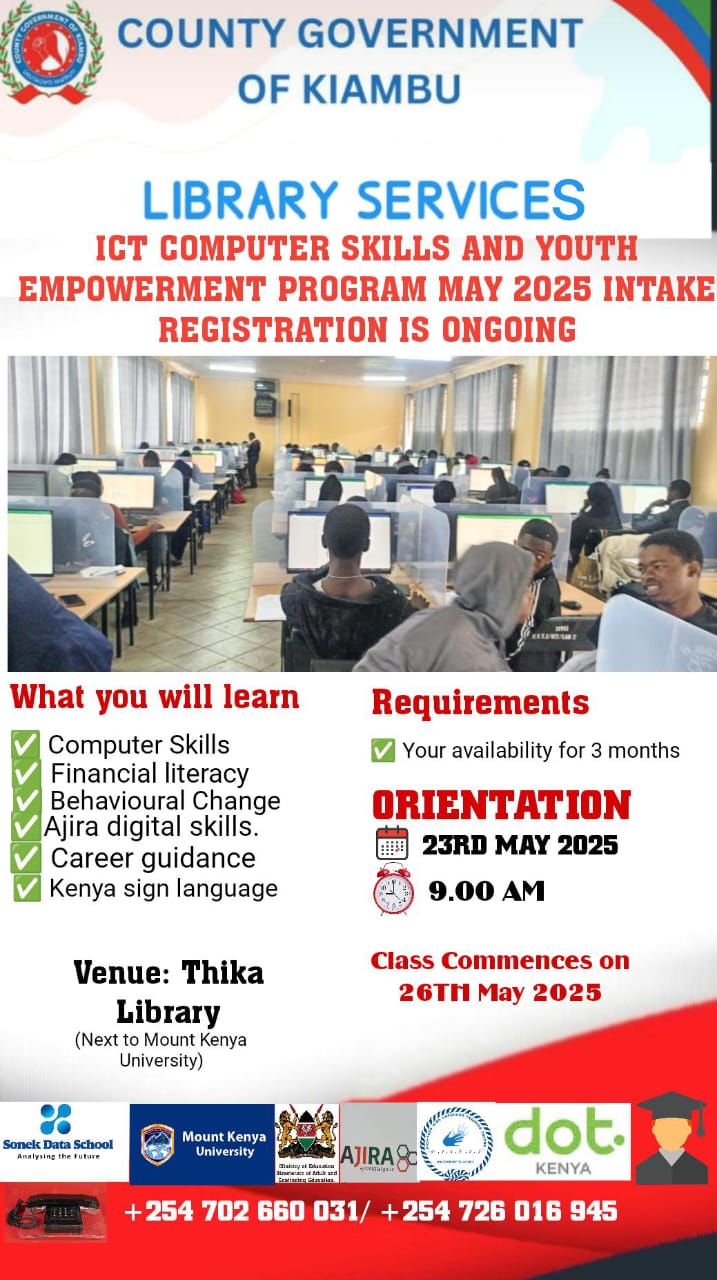Transforming Kiambu’s Early Childhood Education: New state of the art facilities set the stage for a revamped sector
A decade into devolution in Kenya, the grim sight of the dilapidated shack with an earth floor, which hosts Mbariki Nursery School in Nyanduma Ward’s Lari Sub-County, stands as a haunting symbol of the dire condition that has plagued Early Childhood Education Centres (ECDEs) in Kiambu County.

Within these crumbling wooden walls with gaping holes, supposed to serve as the bedrock and foundation of all the children’s lives, thirty young minds, 18 in PP1 and 12 in PP2 classes, grapple with their lessons and the uncertainty of their future and well-being.
Margaret Muthoni, the chief instructor of the facility, says that although pupils have been admitted to the facility—which serves as the model for what most of the 534 centers in the county look like—most leave after one term due to its sorry condition.
Muthoni said for the two levels of ECDE, the number of pupils was consistently under 20 and that it had only recently begun to increase after the County Government of Kiambu introduced a feeding program that provides pupils in the county with a daily bowl of uji and three boiled eggs each week.
“The school’s walls are collapsing, and the ground is a mess. The general state of hygiene has been poor. Therefore, whenever we admitted kids for PPI, their parents would transfer them in the second term, blaming the schools’ bad conditions,” Muthoni told the Standard.
However, the institution is currently getting a significant makeover as a result of Kiambu Governor Kimani Wamatangi’s game-changing effort, which not only wholly overhauls the infrastructure of all ECDEs in Kiambu but also overhauls the structure of all of the schools in the county.

The model ECDE centers will have two classrooms with tiled floors and ceilings, an office, a bathroom for students and staff, and a play area for all the 36 254 kids in county government-owned ECDE centres.
“First impressions are important because they shape a person’s attitude or behavior towards something. Imagine if the children’s first exposure to schooling is in the dreadful condition of public nursery schools; how do we expect them to love learning?” Mr Wamatangi said.
He added: “Currently, we are constructing 130 Early Childhood Education Centers (ECDE) that will be identical and will be completed in December as the first phase of a comprehensive effort to guarantee that all 524 public nursery schools are modernized in the next three years.”
At Kasarini Primary School in Thindugua, which is in Kiambu Township Ward, labourers are busy plastering the walls of the school’s upcoming new ECDE centre, launched last month by the county government.
According to the foreman, Isaac Irungu, he hopes that the facility, which will see the pupils move from the current congested classroom, will be complete for occupation within the next month.

On Wednesday this week, when we took a tour of the school; we encountered the students around break time when each received a cup of porridge and a boiled egg. According to the center’s instructor, Damaris Wanjiru, the Kiambu County Government’s Department of Education provides a stock of porridge flour and treys of eggs, and arrangements have been established to allow the center’s administration to make the meals.
Porridge is offered daily, and eggs are also offered on Mondays, Wednesdays, and Fridays.
The governor says the program aims to increase enrollment and keep kids in schools which most have been skipping due to a lack of food.
It will also be integrated into a socioeconomic empowerment program where women are trained to be the leading suppliers of eggs, among other goals. The county has been delivering one-month-old enhanced kienyeji chicks to all 12 sub-counties through the Department of Agriculture. In the long run, the women who would gain will provide a feeding program for young children to the county government.
The Fourth Schedule of the Constitution divides responsibilities and authority between the national and county governments, and part 2(9) delegates to county governments the duty to offer ECDEs, including infrastructure, learning materials, hiring of teachers, and other general welfare of the pupils.
However, the county governments have been indicted for mistreating the ECDE learners by failing to invest in the area, where most facilities are in bad shape and teachers are poorly enumerated.
A Senate Committee of Education report said that ECDE centers lack proper physical facilities such as toilets, adequate water, and facilities for learners and teachers. Some centers need staffrooms and separate ablution blocks for ECDE teachers, which complicates their efforts to prepare for lessons or have some privacy.

Some ECDE centers also relinquished their physical facilities, such as classrooms, for use by host primary schools, leaving learners congested in one or two rooms and teachers without a staff room, complicating their efforts to prepare and deliver lessons.








